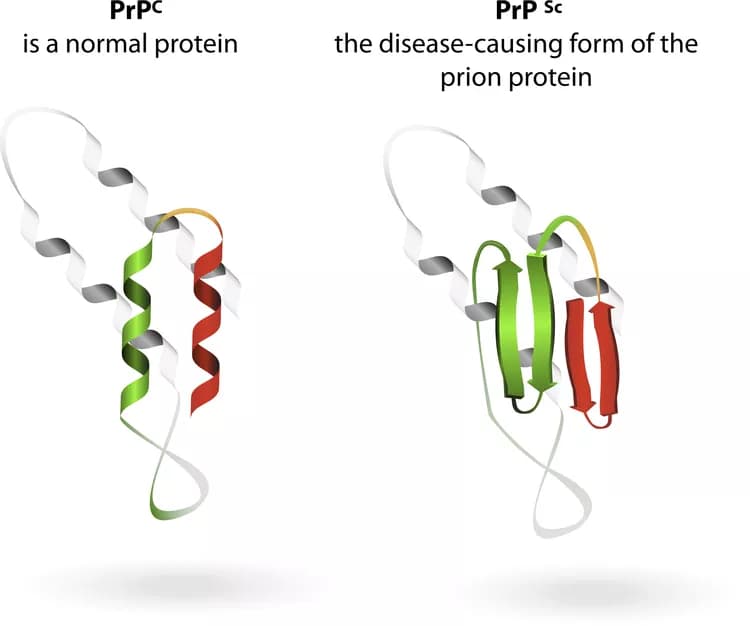
How Prions Kill Neurons: New Culture System Shows Early Toxicity To Dendritic Spines
Prion diseases are fatal and incurable neurodegenerative conditions of humans and animals. Yet, how prions kill nerve cells (or neurons) remains unclear. A study published on May 26, 2016 in PLOS Pathogens describes a system in which to study the early assault by prions on brain cells of the infected host.
Some of the earliest and potentially most critical changes in prion-infected brains occur at the connections (synapses) between neurons, and specifically at so-called dendritic spines. Dendritic spines are protrusions on the post-synaptic branches of a neuron that receive signals from other neurons. However, to date there has been no experimentally tractable model system in which the early degenerative changes caused by prions can be studied in cell culture.
David Harris, from Boston University School of Medicine, USA, and colleagues have argued that the availability of a neuronal culture system susceptible to the toxic effects of prions is crucial for understanding the underlying mechanisms and for potentially identifying drugs that block neurodegeneration. In this study, they report such a system, which reproduces acute prion neurotoxicity through degeneration of dendritic spines on cultured hippocampal neurons.
The researchers started by culturing neurons isolated from the hippocampus (a brain region involved in learning and memory) of mice. These neurons can be maintained in culture for three weeks, during which time they develop mature dendrites studded with spines, which contain chemical receptors that receive signals from neighboring neurons.
When the cultured neurons were exposed to brain extracts from mice with prion disease (which are known to contain large amounts of infectious prions), they showed rapid and dramatic changes: Within hours, there was severe retraction of spines, reducing their overall density and the size of the remaining ones. These changes in spines occurred without large-scale destruction of the neurons, suggesting that they represented very early events that would affect the functioning of the neurons prior to their actual death. When the researchers used three different kinds of purified prion preparations, they saw similar dendritic spine retraction in the cultures.
It is known that the development of prion disease involves an alteration of the normal cellular prion protein (designated PrPC), such that it assumes an abnormal shape (designated PrPSc). The resulting PrPSc is toxic to neurons, and it can propagate an infection by corrupting the shape of additional molecules of PrPC in a kind of chain-reaction.
To test whether the effects of PrPSc in their cell cultures depended on the neurons' normal PrPC, the researchers generated cultures of hippocampal neurons from mice that were genetically engineered to lack PrPC. These cultures, they found, were resistant to toxic prion exposure, i.e., they did not show any of the changes in dendritic spines seen in neurons from normal mice containing PrPC.
Finally, the researchers tested neurons from transgenic mice expressing mutant PrPC molecules that were missing a specific region that is thought to interact with toxic prions. And indeed, the researchers found that these neurons--just like neurons without any PrPC--were immune to prion toxicity.
The researchers summarize their results as follows: "We describe a new system that is capable of reproducing acute prion neurotoxicity, based on PrPSc-induced degeneration of dendritic spines on cultured hippocampal neurons." The system, they state, "provides new insights into the mechanisms responsible for prion neurotoxicity, and it provides a platform for testing potential therapeutic agents."
Because "dendritic spine loss is a common theme in many neurodegenerative conditions, including Alzheimer's, Huntington's, and Parkinson's diseases, and has been suggested to contribute to clinical symptoms in patients," the researchers also suggest that their system allows for "direct comparisons between pathogenic mechanisms involved in prion diseases and other neurodegenerative disorders."
The above post is reprinted from materials provided by PLOS. Note: Materials may be edited for content and length.
Disclaimer: DoveMed is not responsible for the adapted accuracy of news releases posted to DoveMed by contributing universities and institutions.
Primary Resource:
Fang, C., Imberdis, T., Garza, M. C., Wille, H., & Harris, D. A. (2016). A Neuronal Culture System to Detect Prion Synaptotoxicity. PLoS Pathog,12(5), e1005623.
Related Articles
Test Your Knowledge
Asked by users
Related Centers
Related Specialties
Related Physicians
Related Procedures
Related Resources
Join DoveHubs
and connect with fellow professionals

0 Comments
Please log in to post a comment.